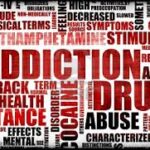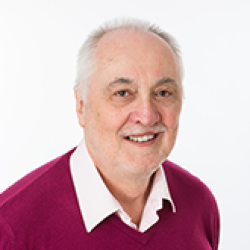Dr Norman
Claringbull
Psychotherapist
Counsellor
Psychologist
The Friendly Therapist
Call now for a free initial telephone consultation
Total confidentiality assured
In-person or video-link appointments
Private health insurances accepted
Phone: 07788-919-797 or 023-80-842665
PhD (D. Psychotherapy); MSc (Counselling); MA (Mental Health); BSc (Psychology)
BACP Senior Accredited Practitioner; UKRC Registered; Prof Standards Authority Registered
Blog Post – July 2014
Posted on June 28th, 2014
ADDICTIONS: (Part 1)
Addiction isn’t just a problem limited to a small, very troubled, sector of society. It’s not just a condition that only threatens heavy drinking ‘boozers’ or party going ‘pill poppers’.  The unfortunate reality is that addiction, (also known as ‘substance dependency’), is found throughout the entire population – all ages – all occupations – all communities. Not only is such substance misuse widespread but it can involve dependence on virtually any mood-altering substance taken in excess, (alcohol, nicotine, legal drugs, illegal drugs, performance-enhancers, caffeine, chocolate, sugar – almost anything). However, we usually tend to only notice the more obvious, the more extreme cases – the so-called ‘winos’, the ‘alkies’, the ‘junkies’. This is because most addicts are very good at appearing to live normal lives. They manage to keep their over-indulgences well-hidden and keep the rest of us well fooled. Many addicts deceive themselves too – they kid themselves that nothing is really wrong. They are in denial.
The unfortunate reality is that addiction, (also known as ‘substance dependency’), is found throughout the entire population – all ages – all occupations – all communities. Not only is such substance misuse widespread but it can involve dependence on virtually any mood-altering substance taken in excess, (alcohol, nicotine, legal drugs, illegal drugs, performance-enhancers, caffeine, chocolate, sugar – almost anything). However, we usually tend to only notice the more obvious, the more extreme cases – the so-called ‘winos’, the ‘alkies’, the ‘junkies’. This is because most addicts are very good at appearing to live normal lives. They manage to keep their over-indulgences well-hidden and keep the rest of us well fooled. Many addicts deceive themselves too – they kid themselves that nothing is really wrong. They are in denial.
The overwhelming majority of addicts seem to manage their lives OK – to begin with at least. However, even for these ‘hidden’ or ‘high-functioning’ addicts, eventually the party has to stop. Their bodies and their minds start to deteriorate and their lives begin to spin out of control. That’s when substance misusers start to go downhill rapidly. If they are lucky they come to realise that they can’t go on like this. At this stage in their lives, addicts only have two choices left: 1) Get clean or 2) Continue to deteriorate, eventually to die a particularly nasty death. It’s that simple. For them, the party is over!
So, can substance misusers and/or addicts get clean by themselves? Well obviously the first task is to stop the boozing and stop the drugging. Put simply – stop using! Actually, for most people stopping is easy. It is the second task – staying stopped – that is hard. This is when substance misusers most need help. This is when counselling and psychotherapy comes into the picture. However, even for experienced therapists, helping addicts to successfully stop relying on their ‘chemical friends’ is far from simple. Of course, as with so many of life’s problems, knowledge is the key to success. This means that therapists, and their clients alike, need to understand how addiction affects people and how and the recovery process works.
This month I’m going to blog about how addiction works. In next month’s blog, (ADDICTIONS: Part 2), I am going to tell you how the recovery process works. The first thing to know is that there is more than one type of addiction. Therefore, when it comes to planning a patient’s recovery strategy it must be a case of ‘horses for courses’. I find it easier to understand how addiction works by dividing it into three types. Of course there is lots of overlap between these types.
Type 1:
If you are a habitual substance misuser, then your body’s physiology has had to adjust so as to be able to safely process the poisonous substances that you regularly flood it with. In effect, your internal systems have retuned themselves – they had to because otherwise you would have died from toxic shock. However, when you stop taking your booze, your pills, your whatever, then your body will start trying to get back to normal. This rebalancing process can cause recovering addicts to experience withdrawal symptoms, (hallucinations, anxiety, depression, insomnia, and so on). In most cases, these unpleasant side-effects will dissipate over the next few days or weeks. In any event, going through the rebound process, also known as ‘cold turkey’ time’, requires determination. Psychotherapeutic support will help you find the strength to endure and to get your life back. The psychotherapist’s key task here is to provide the client with a ‘psychological safety net’.
Type 2:
This is the ‘craving’ type of chemical dependency. We know the pleasure spots in the brain are stimulated by the influx of drugs and booze and that this produces a short-term ‘feel good’ effect in users. Stop the drug or stop the booze and you stop the pleasure ‘highs’. This is the reason that many substance misusers who have apparently successfully given up their bad habits gradually slide back into using again. Without their chemical ‘kicks’ life can sometimes seem dull and pointless. It should be noted that these cravings come from more than just a need for psychological pleasure. They are also caused by physical needs, (appetites), for the pleasure generating chemicals. As a result addicts feel a sort of physical and emotional ‘hunger’ that drives them towards satisfying their cravings.
Clearly, encouraging clients who are trying to overcome the behavioural, psychological and physiological components of drug dependency is very much the role of counsellors and psychotherapists. The key therapeutic task here is to reinforce the client’s motivation
Type 3:
This is known as ‘therapeutic dependency’. It occurs when people who have been using an addictive substance for a sufficiently long time undergo apparently permanent changes in their metabolisms. Fortunately, therapeutic dependency doesn’t affect many people but when it does the changes are probably irreversible. For these people, if the drug is stopped, the withdrawal effects can sometimes be too much to bear. Some therapeutically dependent people might well need access to their drugs for the rest their lives in order to function at a reasonable level. If a regular supply of the substance in question can be secured then some Type 3 addicts may well be able to live fairly normal lives. However, in the UK such a therapeutic compromise is rarely, if ever, possible.
RECOVERY: The real issue, the real concern, for psychotherapists and their recuperating substance-dependent clients is how to manage the physical and emotional problems of withdrawal. How can ex-users avoid slipping back into their bad old ways? Next month I’ll be blogging about how to manage each stage of the recovery process.
WHAT ABOUT YOU? Do you have a problem? If you are confident that you don’t, then why not prove it? Take this simple test. See if you can give up one of your over-indulgences for just 90 days. If you can’t, then it’s time to think. It’s time to start making some decisions about your lifestyle. In the meantime, if you want to know more about the emotional and physiological impacts of mind altering substances, legal and illegal, why not have a look at Chapter 8, ‘Prescription Drugs, Recreational Drugs and Addiction’, in my latest book ‘ Mental Health in Counselling and Psychotherapy’. You can find out more about this book and any of my other books and publications by going to the ‘MY BOOKS’ page on my website – www.normanclaringbull.co.uk
